When it comes to gardening, there's a lot to love about metal raised planter beds. They feature sturdy and long-lasting designs that place your plants at the perfect height so you can tend to them without hunching over or kneeling. Plus, these garden beds are available in a variety of shapes, sizes, and colors
However, as galvanized steel garden beds rise in popularity, questions have been raised about their effectiveness as plant containers. Are they safe for growing edible plants? Do they waste water? Will they get too hot for your plants?
This article will put your fears to rest and debunk the many misconceptions surrounding metal garden beds.

The 5 Myths of Metal Garden Beds
Myth #1: Zinc Will Leach into the Soil
Galvanized steel is created by bonding a layer of zinc to the surface of the steel. This helps prevent the metal from rusting.
One of the biggest fears that gardeners have about using metal garden beds is that the zinc used in this process will seep into the soil and damage any plants and vegetables growing inside it.
While it is true that over long stretches of time a small amount of zinc may seep into your soil, that is not necessarily a bad thing for your vegetables or for the people who eat them.
Zinc is a natural mineral that is commonly found in garden soil. In fact, both plants and humans require a small amount of zinc to survive.
The microscopic amount of zinc that your plants might absorb from the garden bed is not enough to impact your plants or harm anyone who eats the vegetables that grow in the garden bed.
Plus, galvanized steel beds are highly durable, and it would require exposure to high amounts of acidity for the steel to break down. Most garden soils are pH neutral so it is highly unlikely that they will damage your garden bed.
If you are still concerned about the possibility of zinc leaching into the soil, consider this. In the past, galvanized steel has been safely used as the primary material for a variety of food- and water-related items including watering troughs for livestock, grain silos, water storage, and even home water pipes.
Myth #2: Metal Garden Beds Will Get Too Hot
Metal conducts heat and is often warm to the touch after sitting in the sun.
Will a metal garden bed cause plants and soil to overheat? The answer is no.
The temperature of the soil near the edges of the garden may rise slightly on a warm day but not enough to have any impact on your plants. If you properly water your garden bed plants, you should not have to worry about them drying up.
Like metal patio furniture or fences, metal garden beds will warm up after sitting in the sun for long periods but will still remain safe to touch and handle.
In fact, toward the end of the growing season when temperatures begin to drop, the metal material will insulate your plants and soil and keep the soil temperatures more consistent.
Myth #3: Metal Garden Beds Require Large Amounts of Soil

One of the major advantages of raised garden beds is that you can choose the best type of soil for specific plants instead of having to depend on the existing soil in your yard or garden.
However, beginner gardeners can be a bit intimidated by the initial amount of soil required to set up the garden bed.
It is true, garden beds do require soil, but they don't need as much as you would think. Most plants and vegetables only require approximately one foot of quality soil in order to grow.
Instead of filling your entire garden bed with soil, use a filler like pinecones, packing peanuts, or sand to cover the bottom half of your garden bed. Then, place a piece of landscape fabric over the top of the filler and fill the top half with your preferred soil.
For additional tips on how to use fillers, check out our article, 5 Tips for Gardening with Large Planters.
Myth #4: Metal Garden Beds Require Large Amounts of Water
Raised garden beds are typically large in size and the thought of keeping the bed watered can seem daunting, but by following a few tips you can keep the soil moist without constantly watering your garden bed.
When it comes to gardening, whether you're planting in the ground, in a garden planter, or in a garden bed, choosing the right soil is key.
According to a 2021 article by bobvila.com, the best soil option for raised garden beds is a lightweight soil mix. This type of soil will retain moisture, so you won't have to water your beds as often. Avoid using loose, sandy soil as the water will flow through it too quickly and you will need to water again.
When it’s time to water your plants, water them deeply at the soil around the base of the plants. Do not water their foliage or flowers. A soaker hose or a drip irrigation system are two useful watering methods for garden beds.
Myth #5: Metal Garden Beds Have Poor Drainage
On the other hand, another myth that continues to persist about raised garden beds is the opposite of myth #4, that metal garden beds have poor drainage, and your plants will drown in standing water. This is also untrue.
Once again, being able to select the right soil for your metal garden bed is a great benefit because you can choose a lightweight soil that drains easily. Plus, many garden beds are either bottomless or feature drainage holes which allow the water to easily pass through the soil and into the ground.

Maintaining Your Metal Garden Bed to Keep it Safe
Now that you know a bit more about metal garden beds, here are a few additional tips that will help you maintain your garden bed to prolong its product life as well as address some of the concerns that were previously mentioned and grow healthier plants and vegetables.
- Avoid Acidic Soil: To further prevent small amounts of zinc from leaching into the soil, do not use highly acidic soils or amendments in your garden bed as acid is what causes galvanized steel to break down over time.
- Use Liners: If you do plan on growing plants that require acidic soil, use plastic liners on the sides of the garden beds to prevent direct contact between the soil and the sides of the planter.
- Add Mulch: Adding mulch to your garden bed will help prevent evaporation so your garden beds will retain water longer.
- Water Your Plants Early: Another tip for properly watering your garden beds is to water them early in the morning before the sun is high in the sky. This can help ensure that your plants get the moisture they need before the water evaporates.
- Choose the Right Location: When setting up your garden bed, place it in a location that does not receive all-day sun in order to prevent the garden bed from drying out in the heat.
Our article, How to Prepare a Garden Bed for Healthy Plants, also provides valuable information for starting your garden bed.
Build Your Dream Garden with a Durable Metal Raised Garden Bed
Now that we've cleared up some of the myths and misconceptions about metal garden beds, you can feel confident using these stylish containers to grow delicious vegetables and beautiful blooms.
You will love the multitude of benefits these elegant containers provide. With a durable construction and a unique look, you will be able to grow your favorite plants season after season.
Interested in a garden bed for your landscape? Make sure to check out our collection of top quality Sunnydaze Garden Beds. Thank you for reading, and happy gardening!
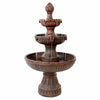
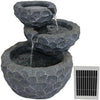
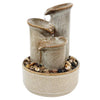

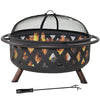
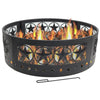
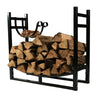
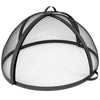
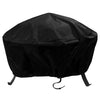
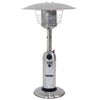
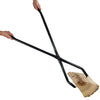
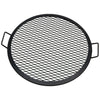
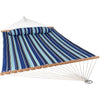
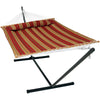
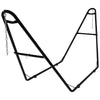

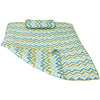
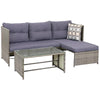
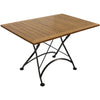
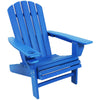
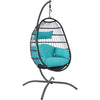

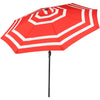
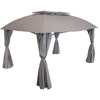

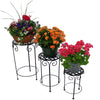
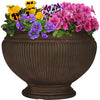
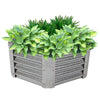
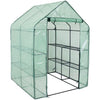
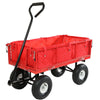
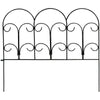
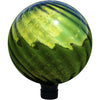



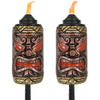


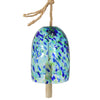

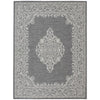
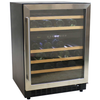
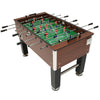
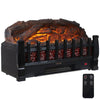



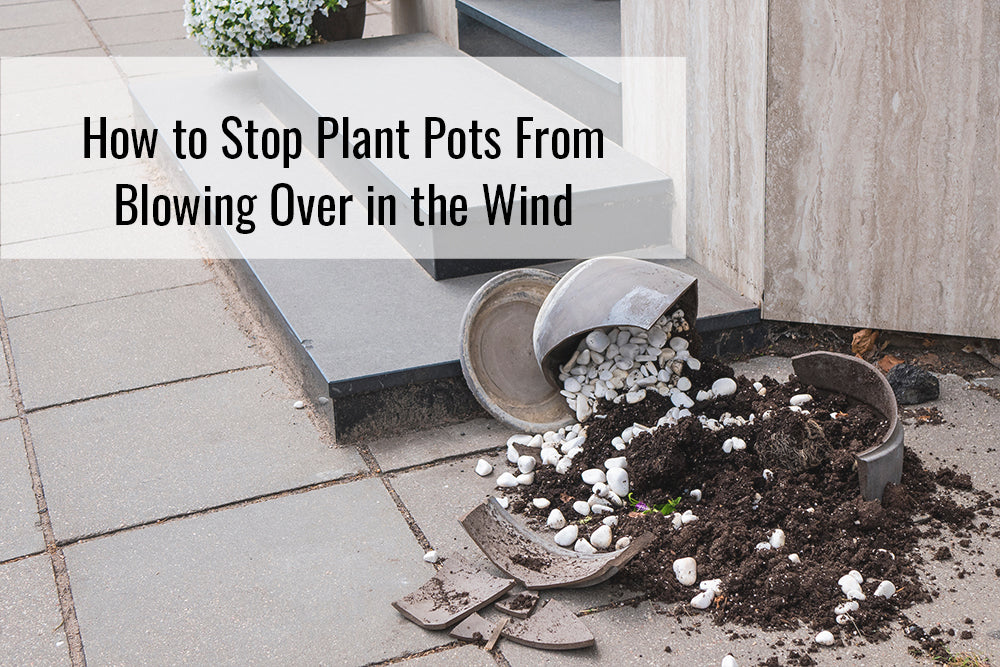









5 comments
Sandra
How about rodents. Can they climb up these metal containers?
Chris W
Quote"Like metal patio furniture or fences, metal garden beds will warm up after sitting in the sun for long periods but will still remain safe to touch and handle."
I think you meant ‘unlike’… Never been burned by a metal chair sitting in the sun? I have. But unlike standing metal items, the bed enclosure will be in constant contact with a lot of moist soil, which helps dissipate the heat.
Steve Walton
could you recommend a liner for the raised bed?
Melinda Sanchez
Metal garden tub …..is it safe to grow editable plants in the tubs
dilip augustine
yes raised garden beds are a lot hotter than planting on the ground. if the garden beds are in shade area. the raised bed will give the plant an advantage to recieve valuable sunlight. but if it is in a sunny position, unless you water your plants 4 times a day, god bless your plants